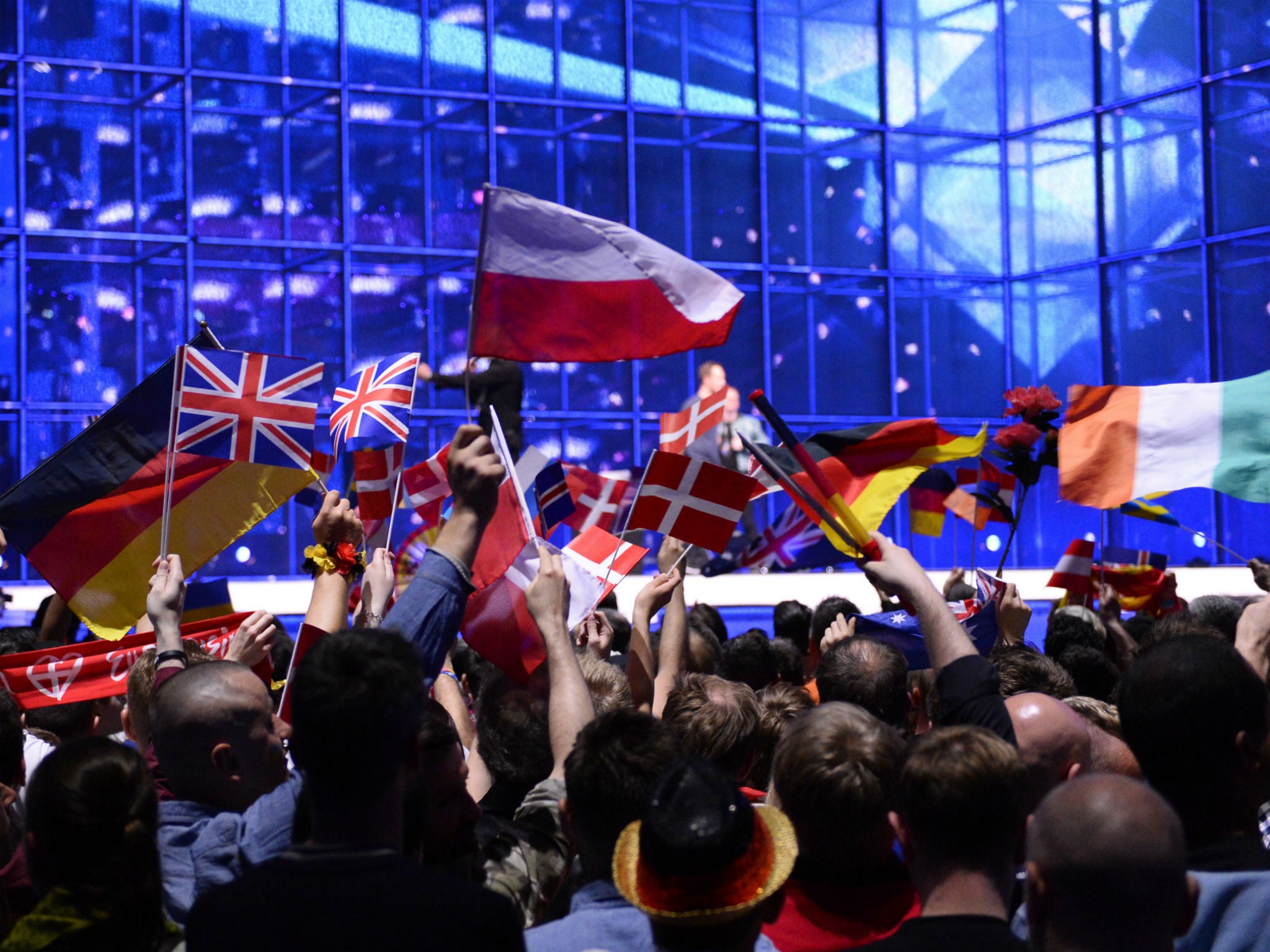Eurovision 2016: Leaked banned flags list says no to Wales but yes to the LGBT rainbow flag
Organisers have apologised to anyone offended by their examples of banned flags

Your support helps us to tell the story
From reproductive rights to climate change to Big Tech, The Independent is on the ground when the story is developing. Whether it's investigating the financials of Elon Musk's pro-Trump PAC or producing our latest documentary, 'The A Word', which shines a light on the American women fighting for reproductive rights, we know how important it is to parse out the facts from the messaging.
At such a critical moment in US history, we need reporters on the ground. Your donation allows us to keep sending journalists to speak to both sides of the story.
The Independent is trusted by Americans across the entire political spectrum. And unlike many other quality news outlets, we choose not to lock Americans out of our reporting and analysis with paywalls. We believe quality journalism should be available to everyone, paid for by those who can afford it.
Your support makes all the difference.There will be no Welsh dragons waving at this year’s Eurovision Song Contest after the official list of banned flags was leaked online. Organisers had previously posted guidelines without naming specific flags.
The team behind the annual cheesefest had already said that only the national flags of competing countries and UN states will be allowed so as to avoid politicising the event.
Other than Wales, prohibited flags include those of Palestine and the Basque Country, Crimea and Northern Cyprus, and Isis. The Scottish saltire has also reportedly been banned.
Update: Flags of any competing singers will be permitted, meaning the Welsh flag will be allowed
The rainbow LGBT flag has been given the green light “as a symbol of tolerance and diversity”, possibly because of the huge popularity of the contest among the gay community. Fans have, however, been ask not to wave them “politically” against countries with poor LGBT rights such as Russia. The EU flag will also be permitted.
“The European Broadcasting Union aims to ensure that the Eurovision Song Contest is free from political statements, unauthorised commercial messages and offensive comments, in line with the contest’s rules that all 42 participating broadcasters agreed upon,” a Eurovision spokesperson said.
“The organisers are fully committed to the safety of the audience and crew. For these purposes, the Reference Group of the Eurovision Song Contest, which is the contest’s governing body on behalf of the participating broadcasters, decided on a flag policy.
“On the request of the venue, the flag policy contains some examples of flags that are not permitted under the flag policy. It is important to state that the flag policy is not aimed against specific territories or organisations and certainly does not compare them to each other, but merely aims at assuring that the broadcast is free from the aforementioned messages and to assure that venue and security staff can enforce this policy upon entrance without delaying the entrance of some 10,000 people.
“I would like to reaffirm to you that the flag policy is not aimed against any organisation of territory specifically including Wales.”
Organisers have apologised for any offence caused by the leaked list of banned flags, with the rules listed in full below:
- No flags/banners containing statements in other languages than English or the language of the host country.
- No objects, such as selfie sticks, that obstruct the view of the camera, production crew or ticket holders.
- No flags/banners containing a commercial message or a statement that the organisers consider of offensive, discriminatory, unsuitable, political or religious nature.
- Flags without a stick can be a maximum size of 80cm x 120cm. Flags with a stick can be a maximum size of 40cm x 60cm. Only plastic sticks of max 20cm in length are allowed. Wooden or metal sticks are not permitted.
- Confiscated flags/banners will not be returned and anyone bringing in an offensive flag may be removed from the venue.
The Eurovision final takes place on Saturday 14 May in Stockholm, Sweden with duo Joe and Jake representing the UK.
Join our commenting forum
Join thought-provoking conversations, follow other Independent readers and see their replies
Comments